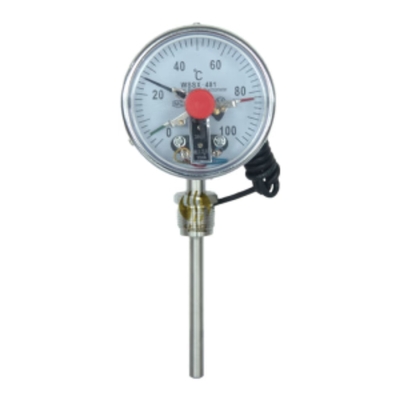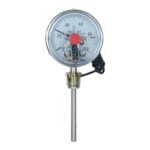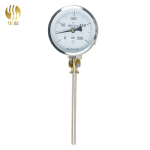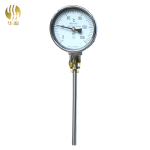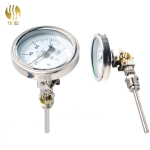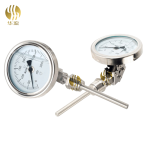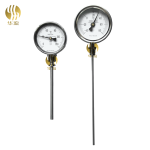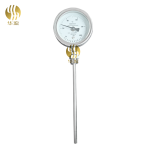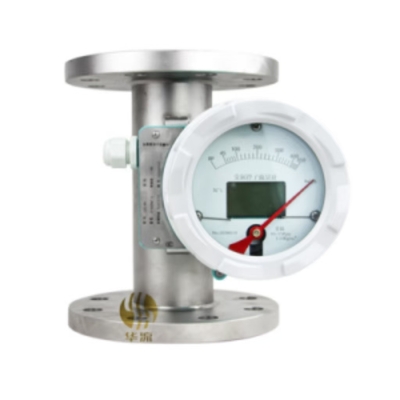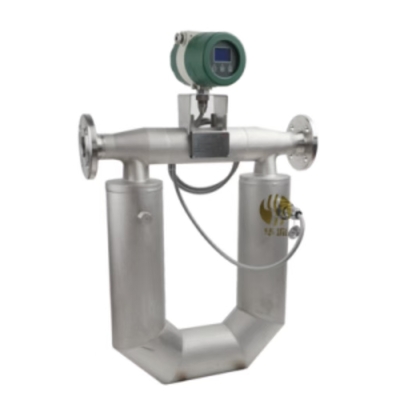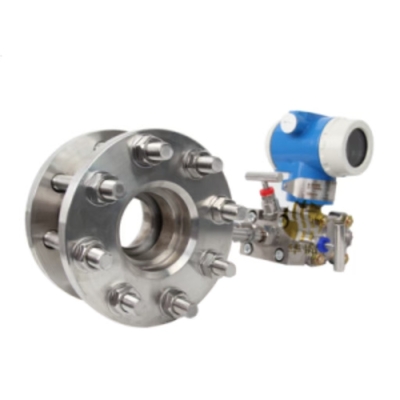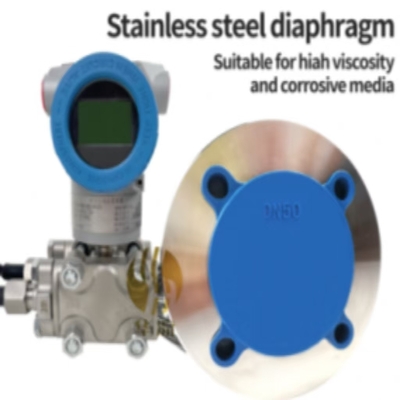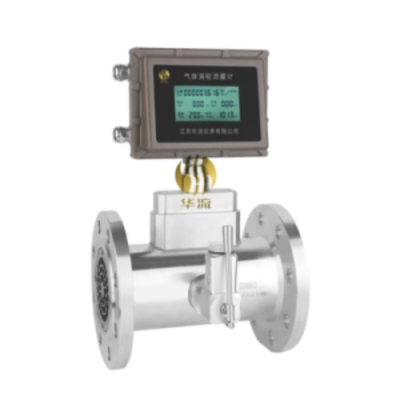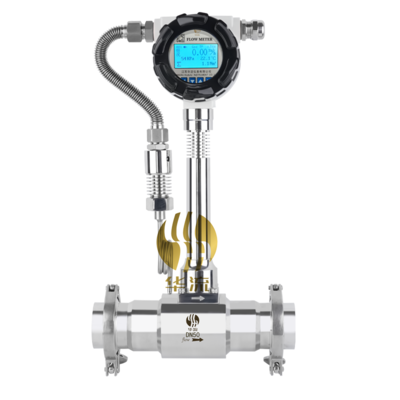Advantages:
1. Mercury-free and stable: Bimetal thermometers use two types of metal plates with different expansion coefficients to firmly combine to form a temperature-sensing element. They are generally wound into a spiral shape, with one end fixed and the other end equipped with a pointer. When the temperature changes, the curvature of the temperature-sensing element changes, and the free end rotates, driving the pointer to indicate the temperature value on the dial.
2. Durable and affordable: Bimetal thermometers are generally made of SS304 stainless steel, which has an anti-corrosion effect and is particularly suitable for chemical pipelines. The price is also very favorable, and the operation is very simple.
3. Bimetal thermometer can directly display the temperature on site, which is intuitive and convenient.
4. Bimetal thermometer has a sturdy structure, good material, vibration resistance, and is not easily damaged. Under normal use, it can ensure that there are no defects in the material and manufacturing process.
5. Bimetal thermometer has a complete range of specifications and installation methods, including radial, axial, and universal types. The length and thread of the temperature sensing tube for bimetal thermometers can be customized to meet the installation requirements of different equipment
6. High accuracy. The bimetal plate of a bimetal thermometer: The sensitive temperature sensing element accurately indicates the temperature based on different temperatures and tests. The accuracy of bimetal thermometers can usually reach ± 0.5% or higher, which is higher than other temperature detection instruments such as ordinary thermometers and resistance thermometers. This high-precision characteristic makes bimetal thermometers suitable for applications that require very precise temperature measurement, such as laboratory chemical reactions, semiconductor manufacturing, etc.
7. Widely applicable, bimetal thermometers can directly measure the temperature of liquid, steam, and gas media in various production processes. Widely used in various industries, such as metallurgy, chemical industry, manufacturing, oil, natural gas, etc. The bimetal thermometer can measure temperatures ranging from -200 degrees Celsius to up to 1200 degrees Celsius, meeting the needs of the vast majority of industrial and scientific research.
A bimetal thermometer is a kind of on-site detection instrument for measuring medium and low temperatures, which can directly measure the temperature of the liquid, steam, and gas media within the range of -80~500 ℃ in various production processes.
Features:
- On-site temperature display, intuitive and convenient
- Accuracy level: 1.0/1.5
- Safe and reliable, long service life
- A variety of structural forms to meet different requirements



